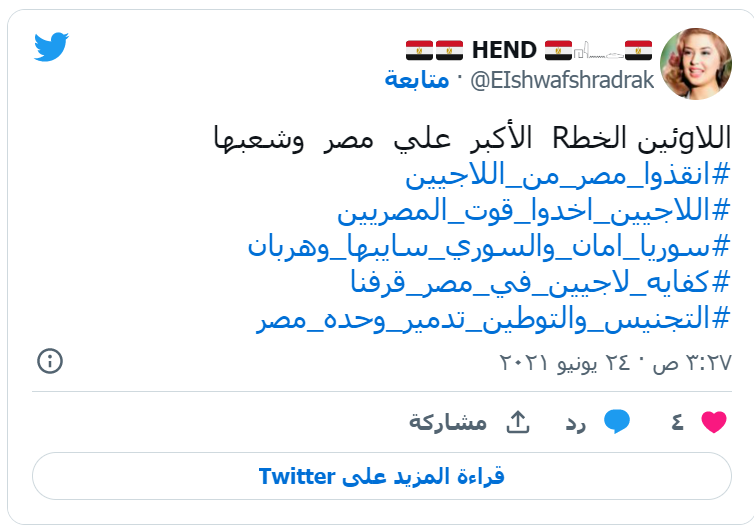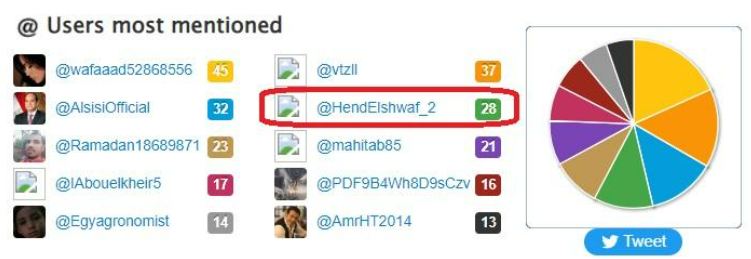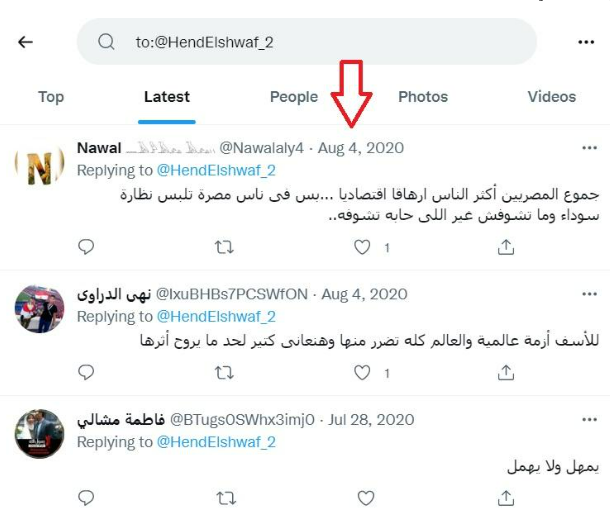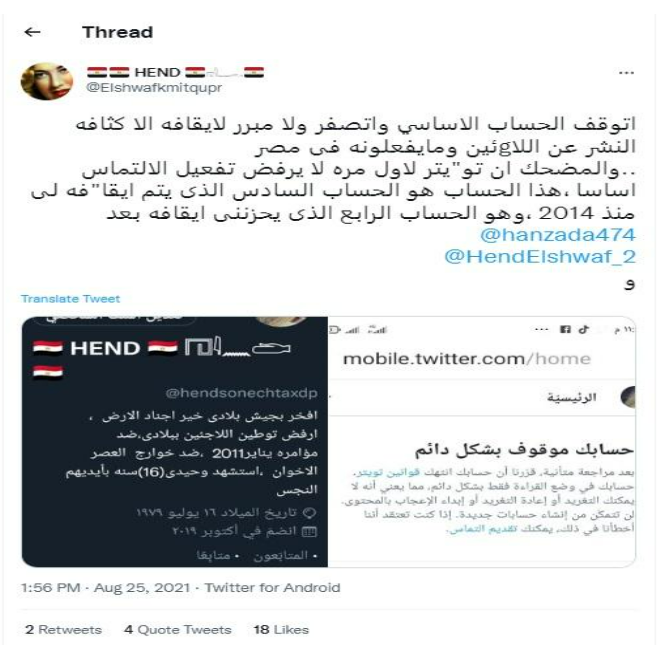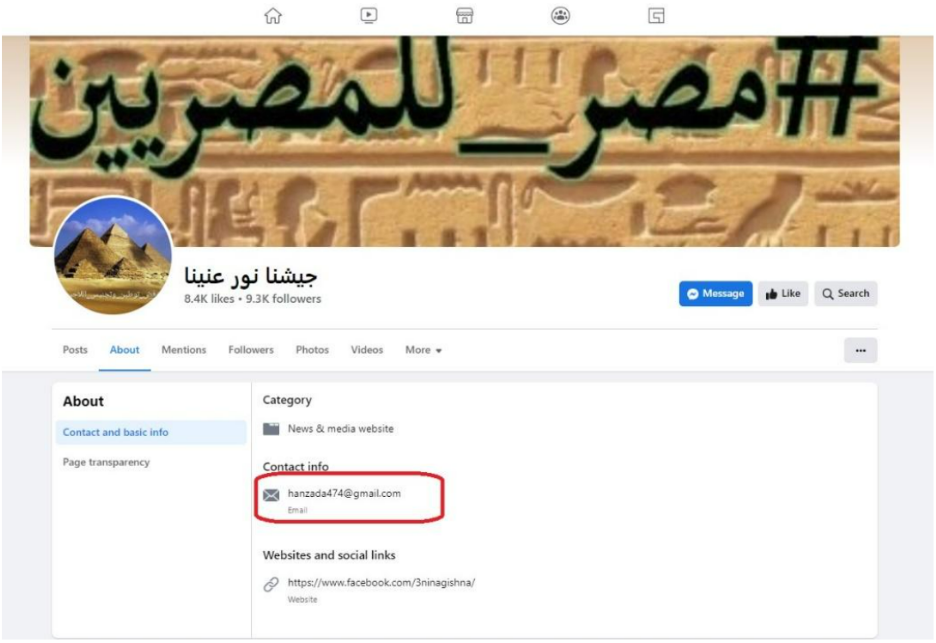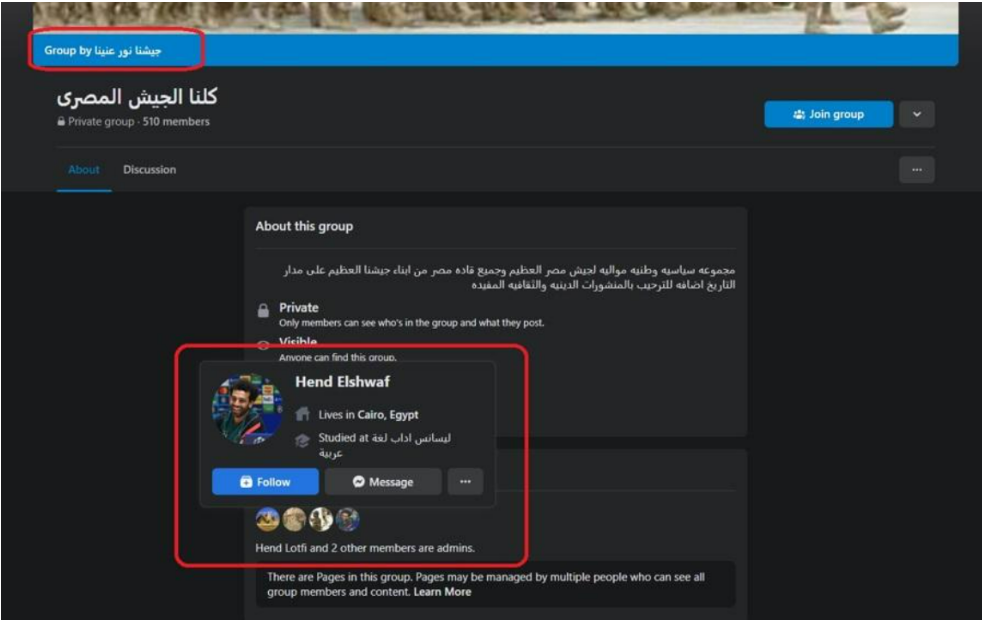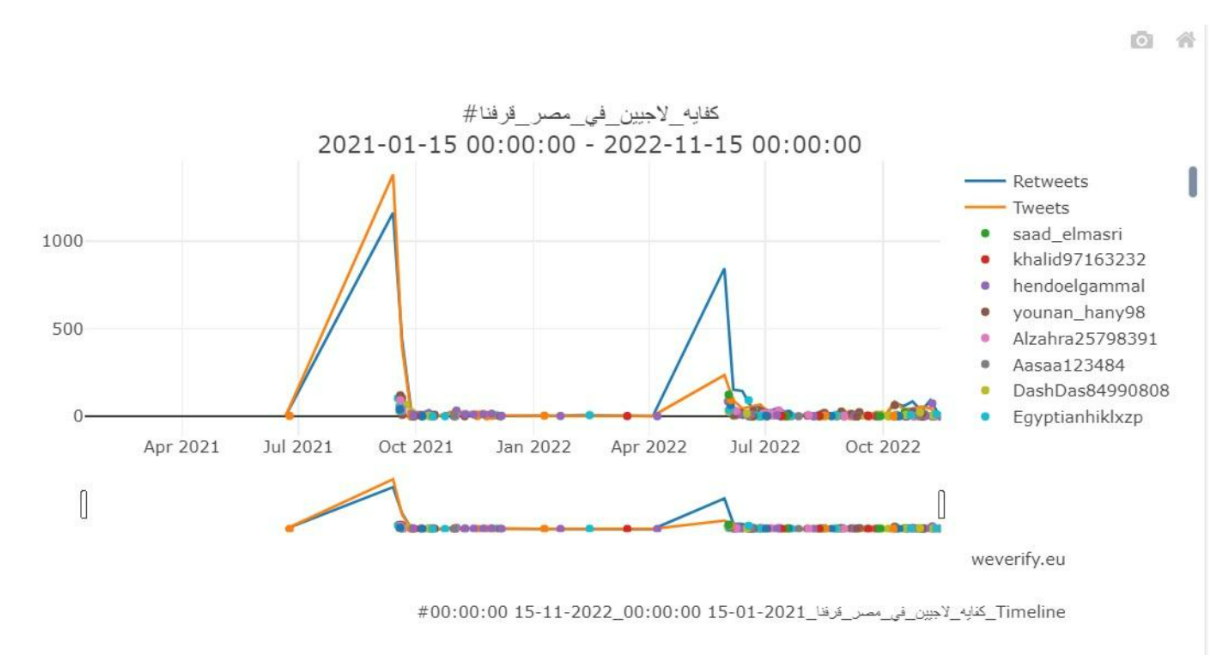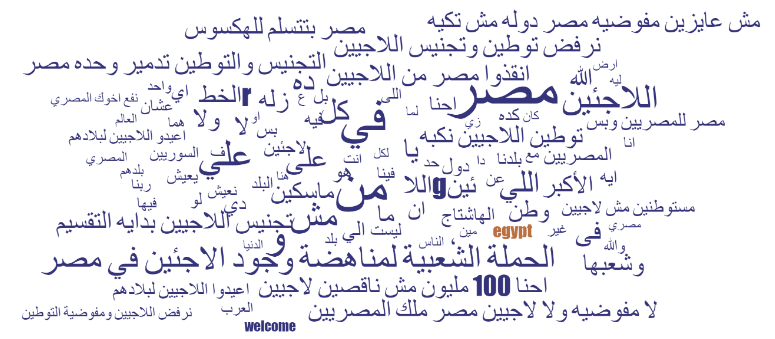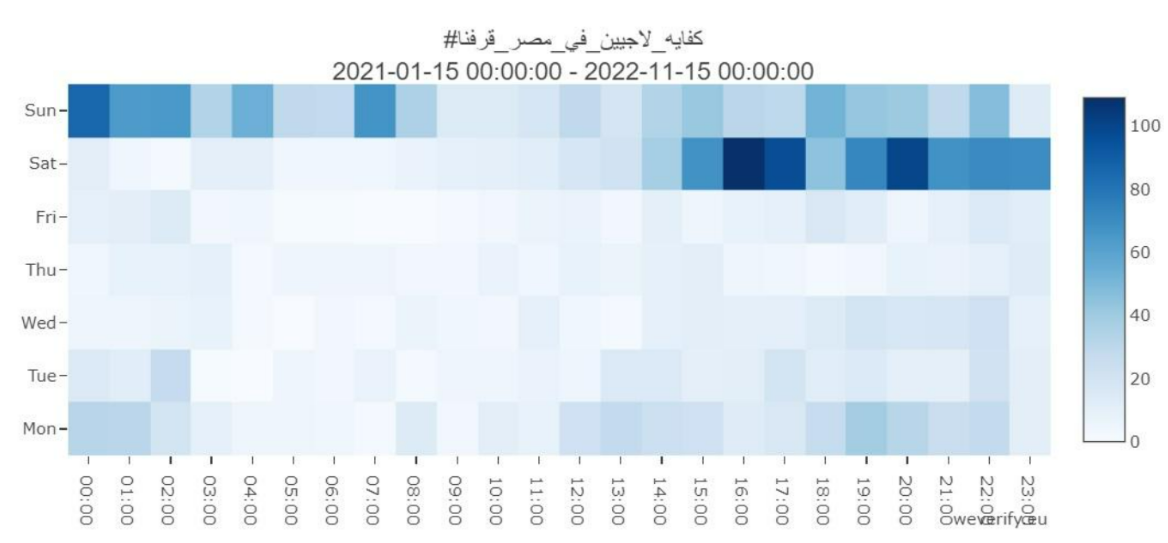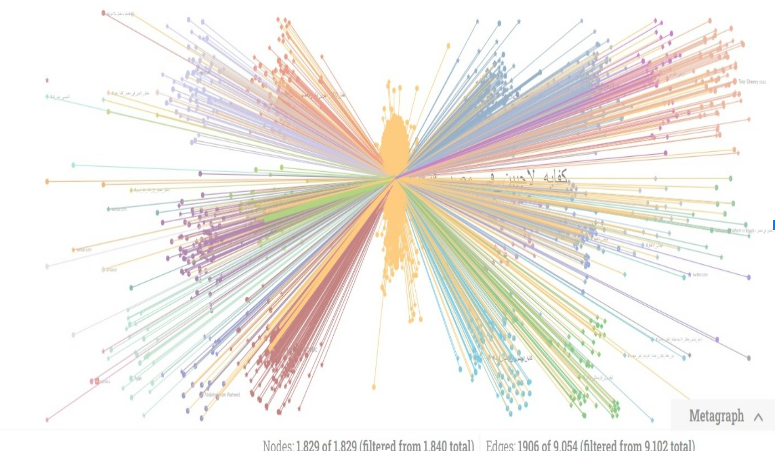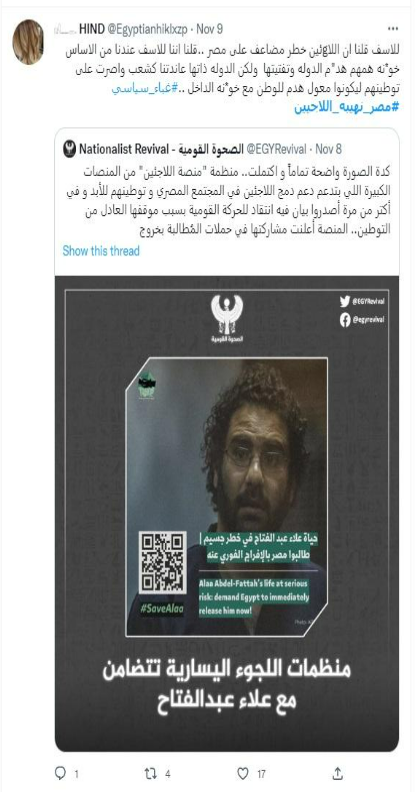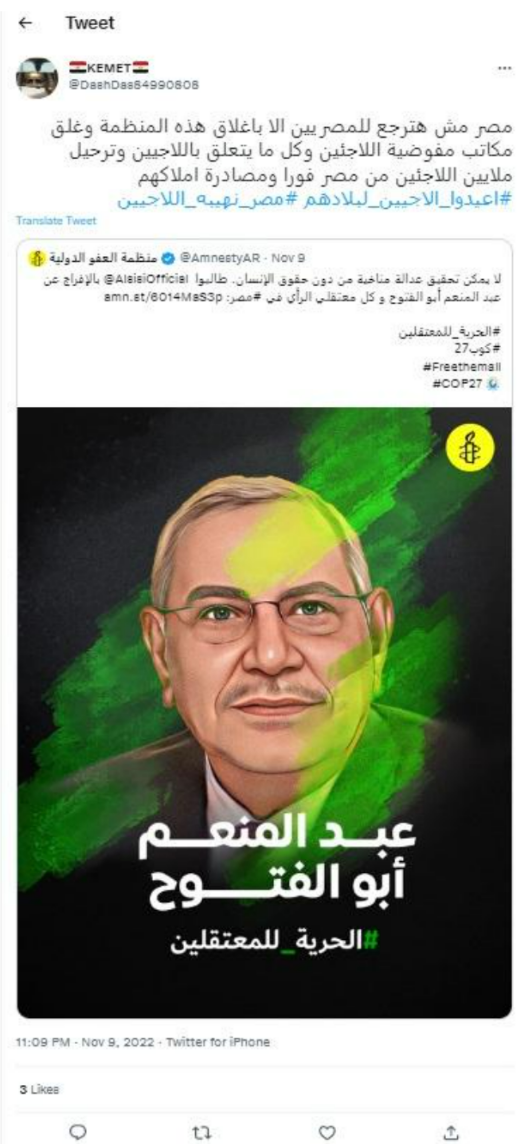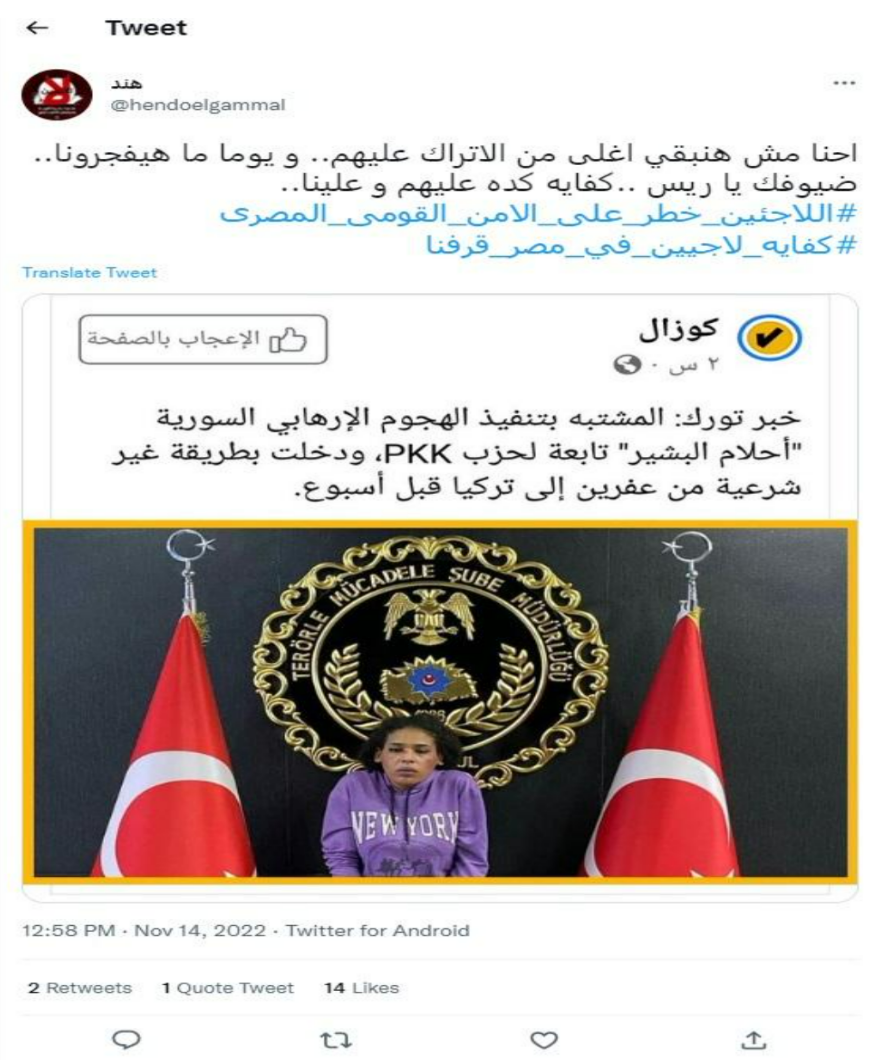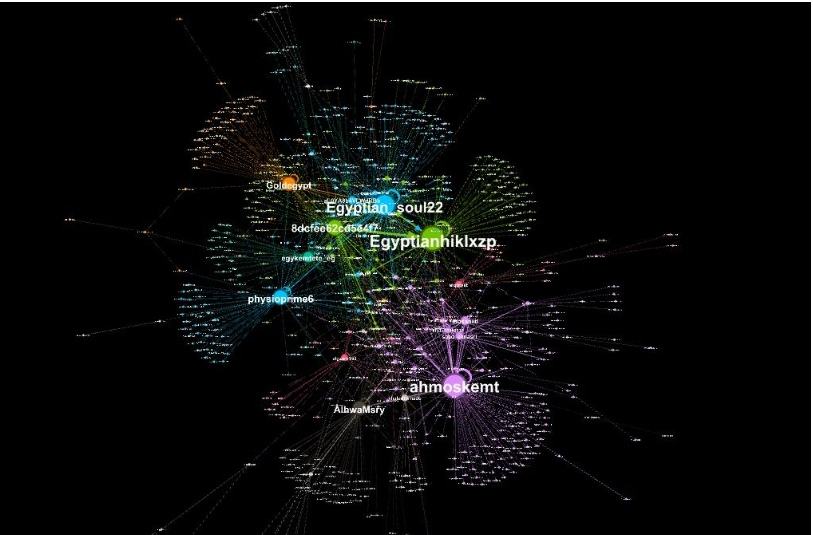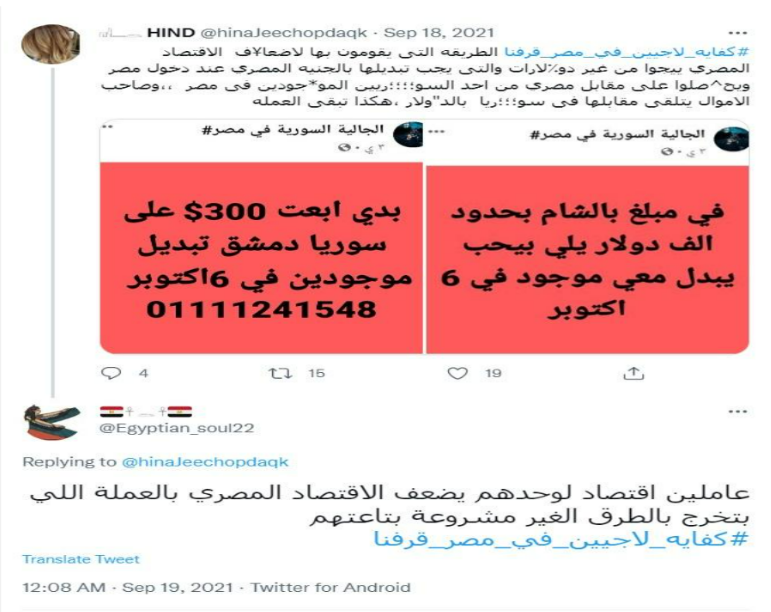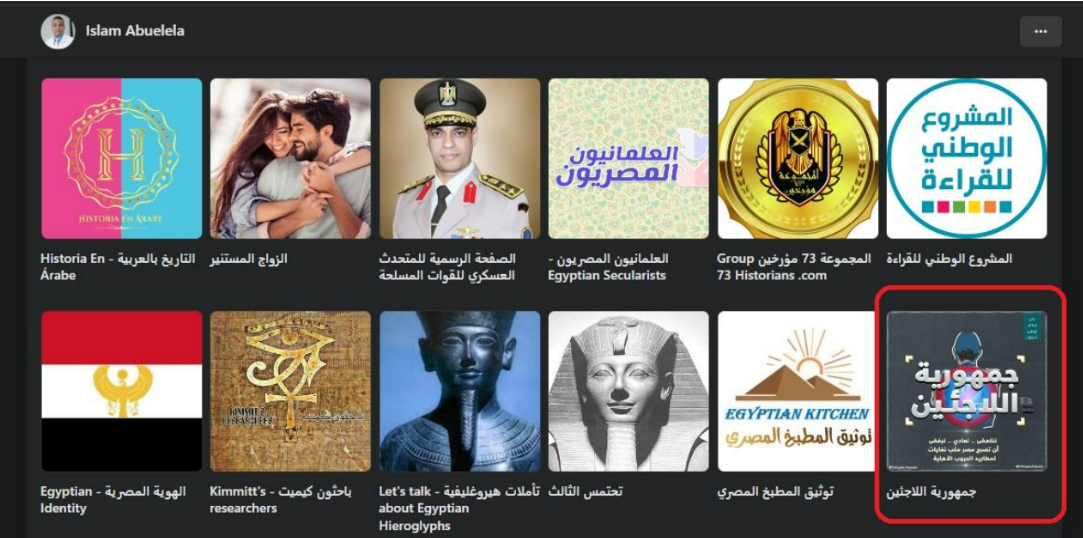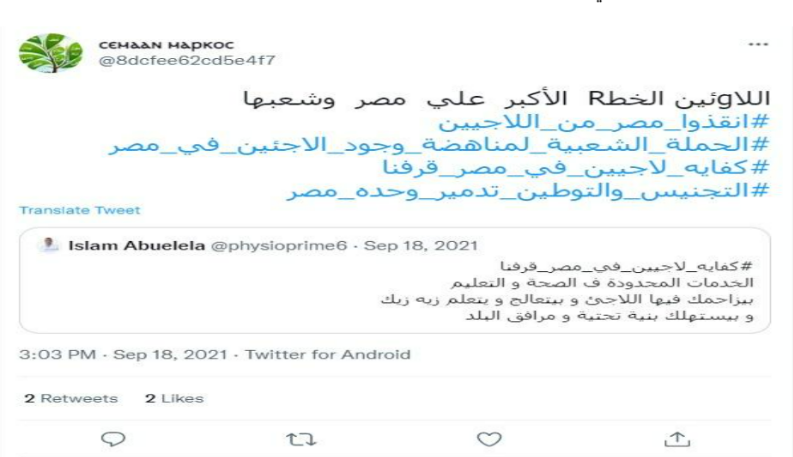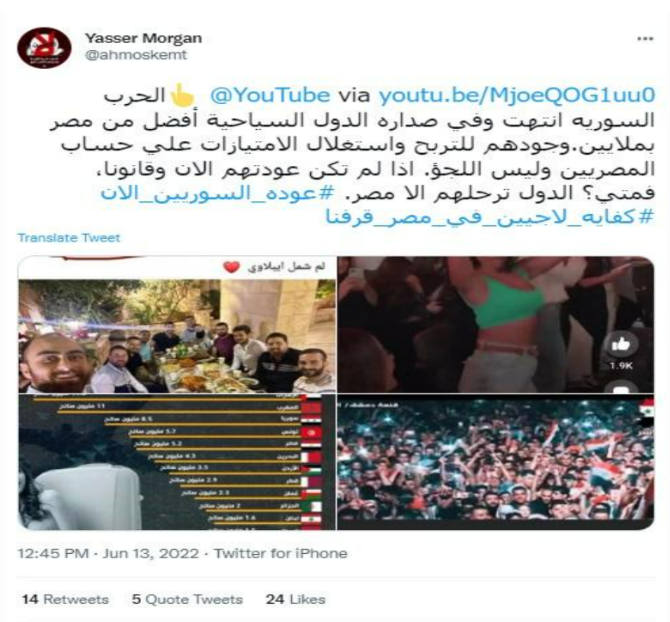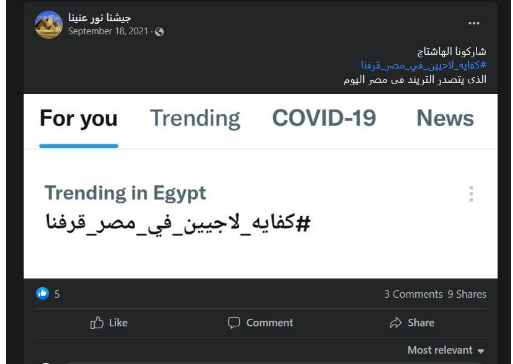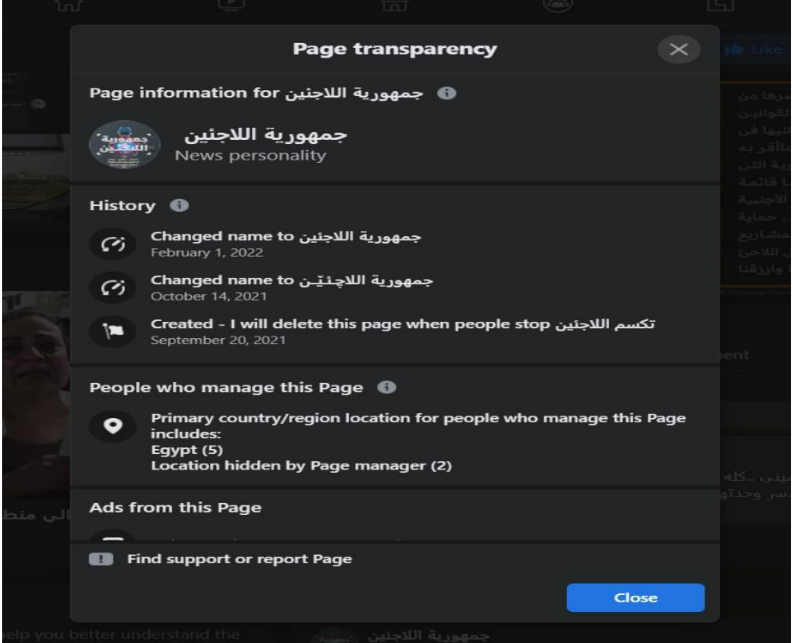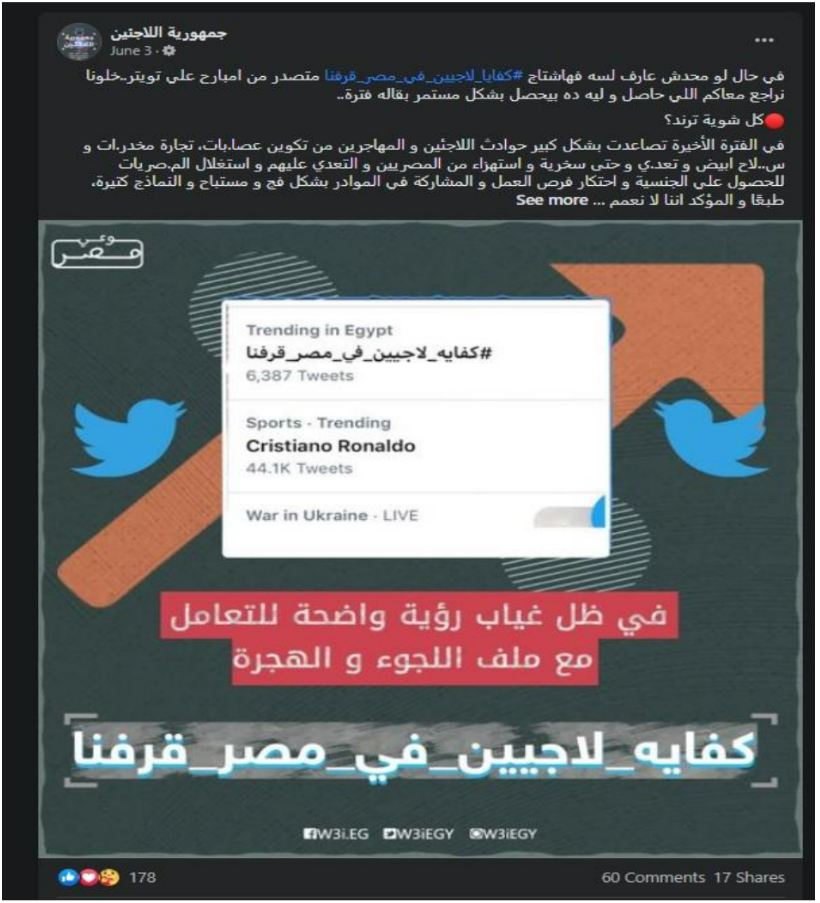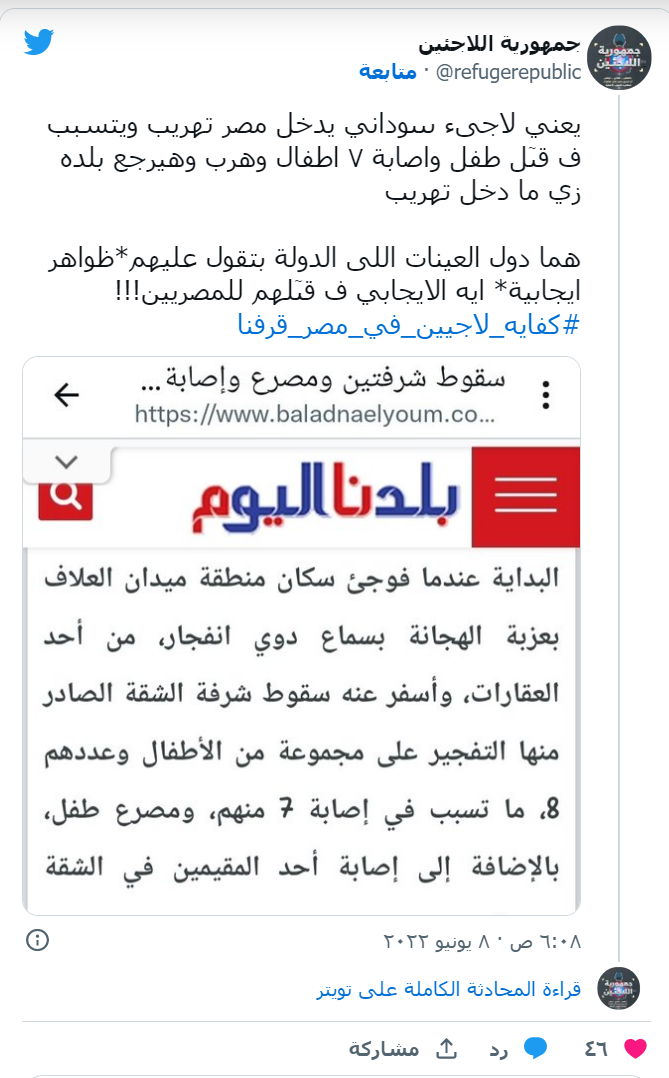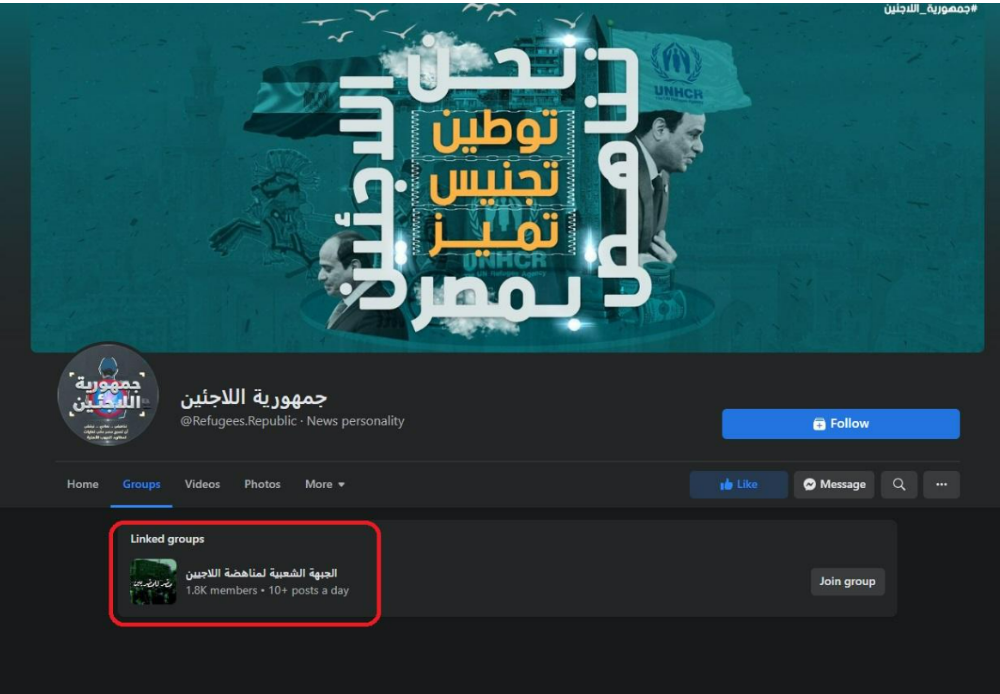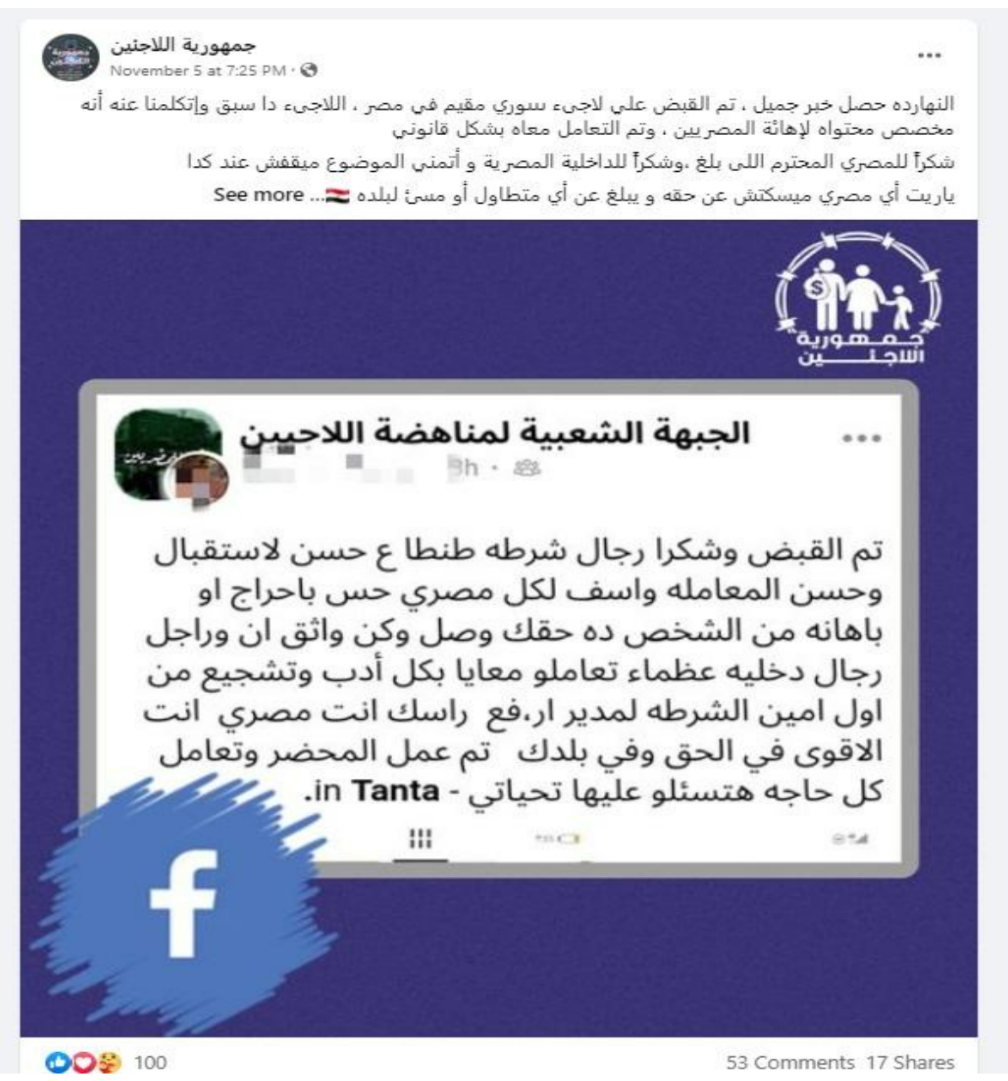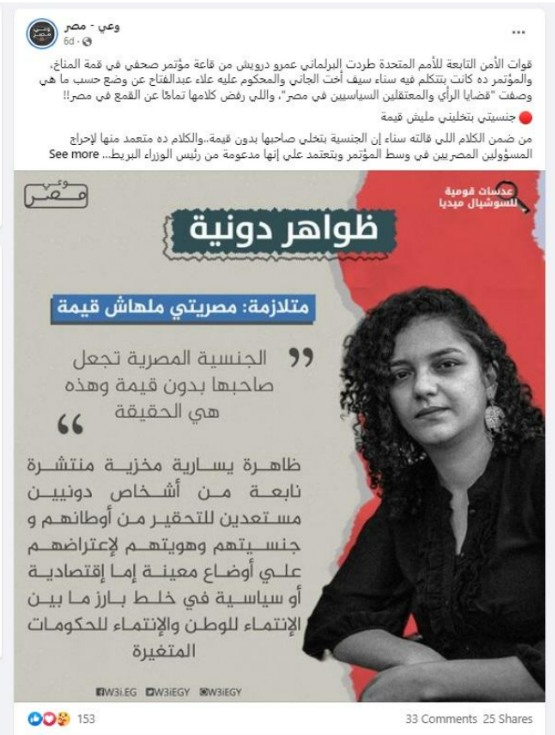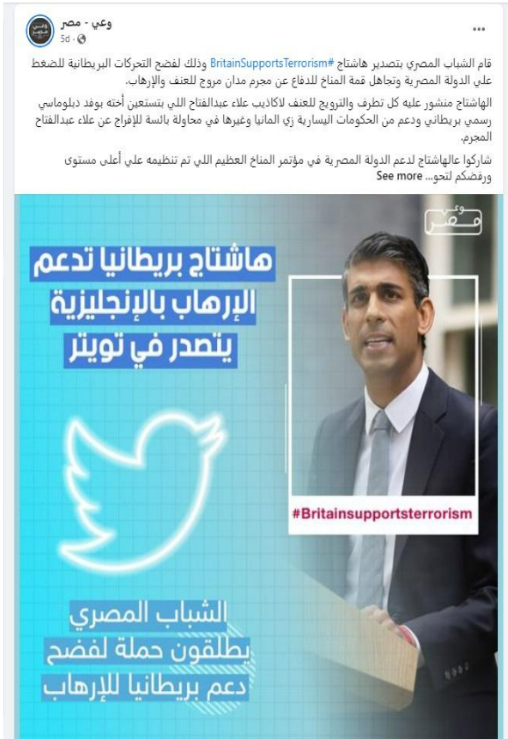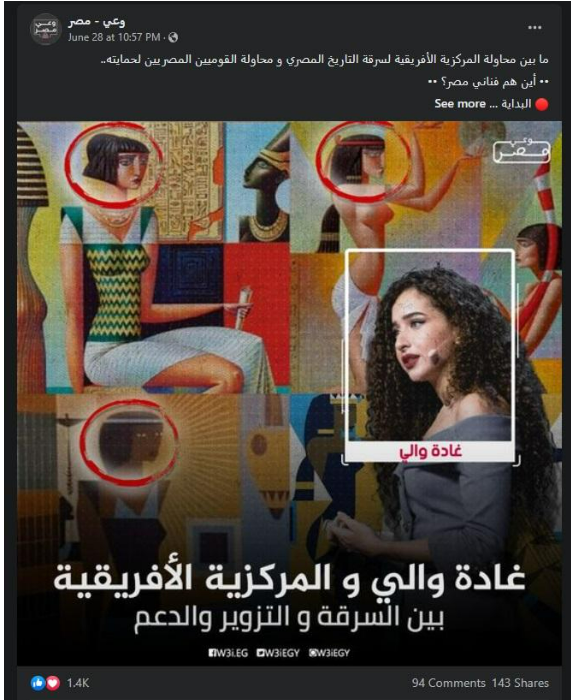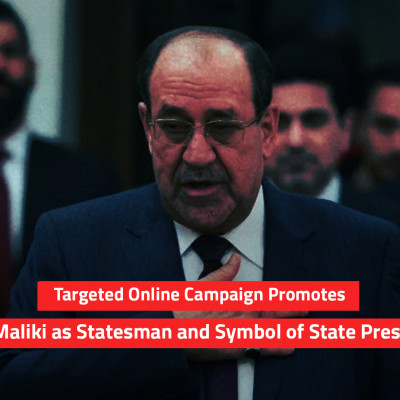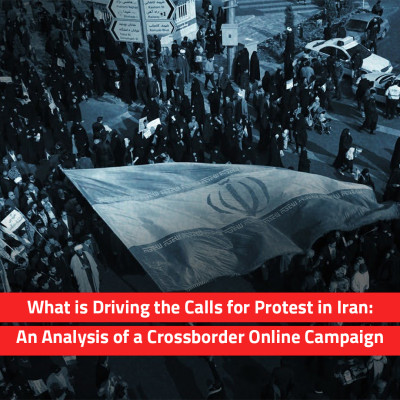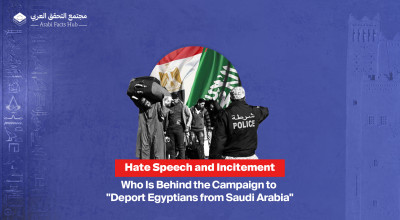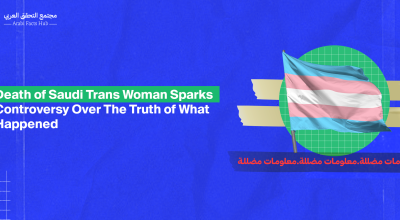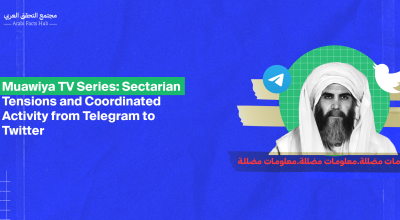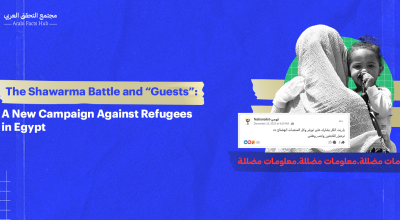"Enough Refugees in Egypt"… What's Behind the Amplification of the Hashtag and its Context
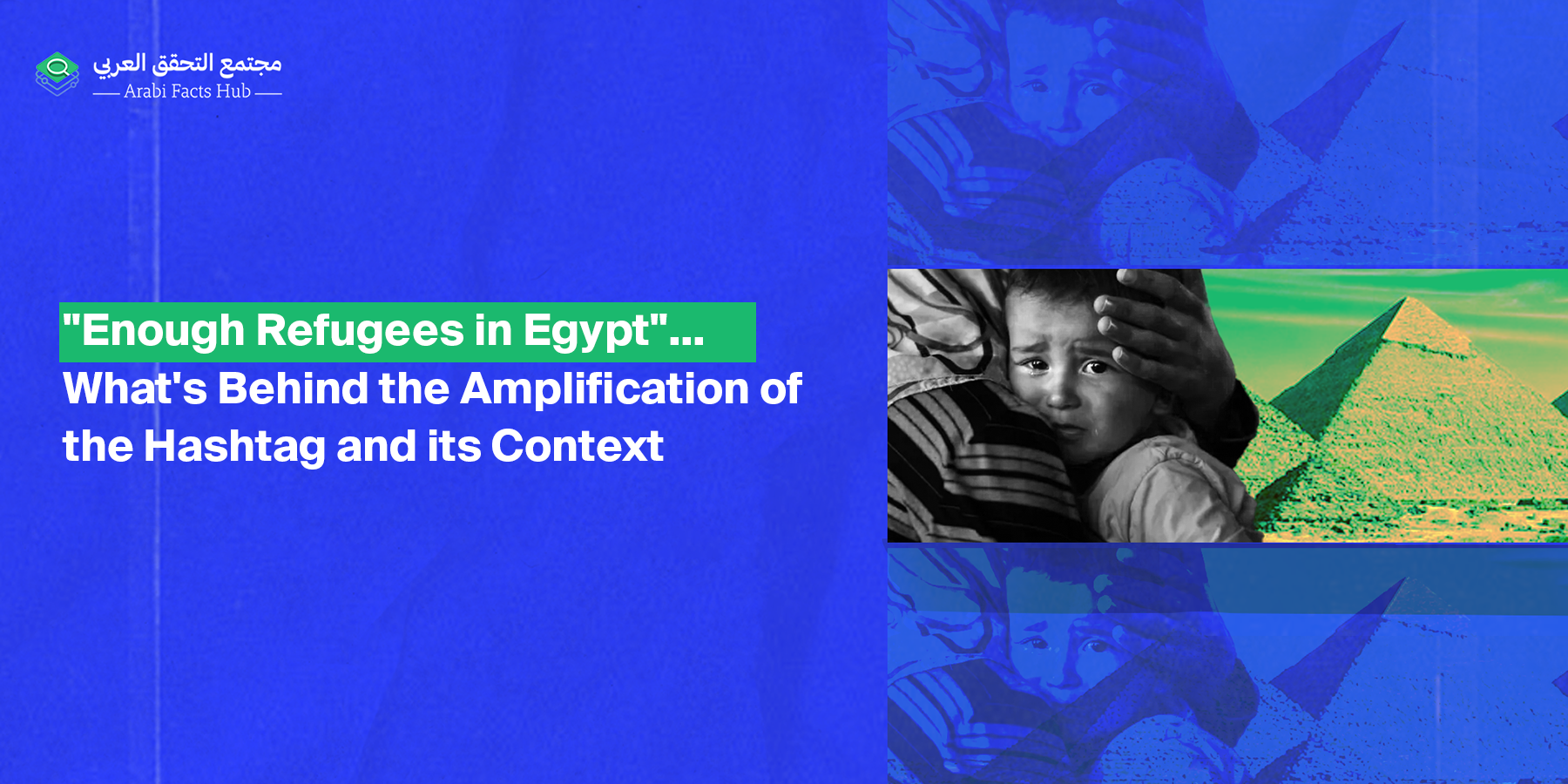
This is part of a series of investigative reports published in collaboration with Daraj media
Large numbers of refugees and migrants reside in Egypt through official channels and holding legal status. However, an accurate count of their actual numbers remains elusive. This could be attributed to a sizable portion of them living in economic circumstances that render them ineligible for registration with the United Nations Refugee Agency.
_____________________________________________________________________________
Arabi Facts Hub (AFH) is a specialized research project that utilizes software to support Arab fact-checking platforms. This includes establishing a unified technical standard database that aggregates content from fact-checking platforms electronically. This enables wide-ranging search and analysis tools. The project aims to integrate artificial intelligence and machine learning techniques into its framework. Additionally, the project provides services, such as the "Eye on Twitter" reports, utilizing technological tools to track and identify sources of misinformation campaigns and hashtags associated with misleading news on social media. "Daraj" publishes this report in partnership with AFH.
___________________________________________________________________________________
From time to time, debates flare up on social media platforms following government statements estimating the number of refugees at around 6 million, while the United Nations Refugee Agency maintains that their numbers do not exceed approximately 290,000 refugees.
This has led to confusion between the concepts of refugees, migrants, and legally residing individuals for work, study, or medical purposes. The presence and impact of these migrants on the social fabric has been exaggerated, sparking organized campaigns on social media to target this demographic. Online campaigns demand the expulsion of migrants from the country, sometimes even inciting explicit hostility towards them, using misleading information.
Arabi Facts Hub has monitored some of these campaigns and tracked those responsible across various social media platforms.
How did the story begin?
In September 2021, the hashtag #EnoughRefugeesinEgyptWe'veHadEnough appeared on the list of Twitter trending topics in Egypt. The hashtag saw periodic activity, preceded by a gradual buildup that temporarily gained momentum, making it trend, before gradually fading or experiencing a decrease in tweet activity, only to resurface again. The hashtag was part of a series of hashtags that both preceded and followed it as an ongoing campaign characterized by organized and persistent efforts. These efforts were orchestrated and propelled by “pre-packaged” groups on Facebook, as well as by accounts, the majority of which were operated by genuine individuals, on Twitter.
The Facebook groups share nationalist ideologies and vehement opposition to the presence of refugees in Egypt, attributing economic crises, a scarcity of job opportunities, and governmental inefficiencies to their presence. Furthermore, they actively engage in smear campaigns aimed at fostering negative sentiments towards refugees. Despite asserting their independence, these groups were entangled in political agendas, notably featuring prominently in campaigns critiquing the blogger and activist Alaa Abd El Fattah. They often crafted arguments unrelated to his case to rationalize their resistance to his release.
This analysis seeks to delve into the dynamics of interactions surrounding the hashtag, explore the nature of the content disseminated through it, examine its propagation across social networks, and identify the key pages and accounts instrumental in its dissemination.
What happened?
On 23 June 2021, the United Nations High Commissioner for Refugees (UNHCR) announced that up to 1.47 million refugees would need resettlement in 2022, with Syrians at the forefront. The following evening marked the debut of the hashtag #Enough_Refugees_in_Egypt_Weve_Had_Enough on Twitter, initiated by the account @EIshwafmtyecIqx, established on 5 August , 2020.
Our analysis started in the summer of 2022 when the account had this handle @EIshwafmtyecIqx before it was changed to @EIshwafkmitqupr. This is confirmed by a screenshot from the "First to Tweet" account, displaying both the former and current handles of the account, confirming that its owner (Hind El Shawaf) retained it and merely changed the handle, possibly to evade the Twitter’s detection of inauthentic activity.
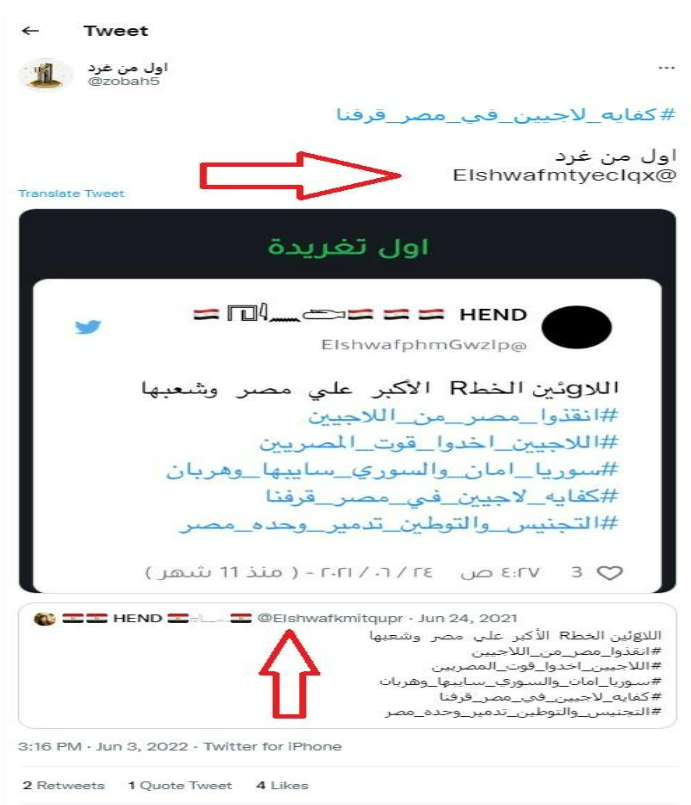
*First tweet:
